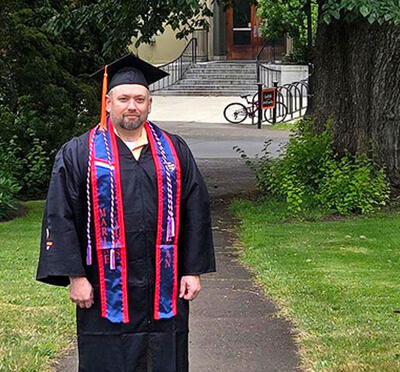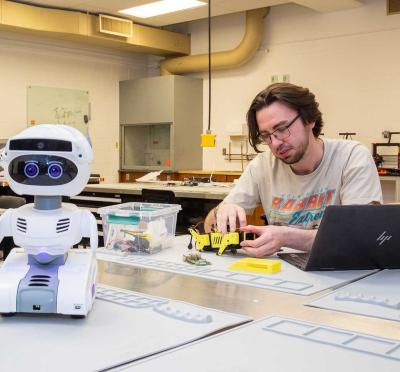
Andy Dong
Sch Mech/Indust/Manufact Engr
208 Rogers Hall
Corvallis, OR 97330
United States
Andy Dong is head of the Oregon State University School of Mechanical, Industrial, and Manufacturing Engineering and a professor of mechanical engineering. His research addresses strategy in the design and innovation of engineered products and systems. His research aims to explain the impact of design strategy on productivity and the betterment potential of new products. His background in artificial intelligence in design has led him to collaborative work across a wide range of topics in behavioral economics, cognition, and computational fabrication.
Considered around the world as an expert in design strategy, he has provided advice to major international telecommunications, financial services, and civil aviation companies. He was awarded an Australian Research Council Future Fellowship in 2010, one of the most prestigious research fellowships in Australia, and appointed the inaugural Warren Centre Chair for Engineering Innovation at the University of Sydney in 2012. Prior to joining Oregon State, he was the professor and chair of the MBA in Design Strategy program at California College of the Arts and an adjunct professor of mechanical engineering at the University of California, Berkeley. He is an associate editor for the journal Design Studies. He received his bachelor's, master's, and doctoral degrees in Mechanical Engineering from UC Berkeley.
Research Interests
Andy Dong studies strategy in the design of engineered products and systems.
Publications
The following is a selection of publications covering the range of research I conduct. All of my publications are linked through Google Scholar.
Robinson, M., Taube-Adams, B., Kang, S., & Dong, A. (2023). A Functional Perspective on the Emergence of Dominant Designs. Journal of Mechanical Design, 146(5). doi:10.1115/1.4064043
Trautschold, O., & Dong, A. (2022). Additive Manufacturability Analysis of Multiscale Aperiodic Structures: A Statistical Mechanics Approach. Journal of Mechanical Design, 145(1). doi:10.1115/1.4055949
Chandra, P., & Dong, A. (2022). Valuation of energy harvesting technologies — Insights for technology managers. Energy Reports, 8, 6987-6998. doi:10.1016/j.egyr.2022.05.032
Dong, A., Garbuio, M., & Lovallo, D. (2016). Generative sensing: A design perspective on the microfoundations of sensing capabilities. California Management Review, 58(4), 97–117. doi:10.1525/cmr.2016.58.4.97
Dong, A., & Sarkar, S. (2014). Generalized design knowledge and the higher-order singular value decomposition, Design Computing and Cognition '12 (DCC12) (pp. 415–432). Dordrecht: Springer Science and Business Media B.V.


